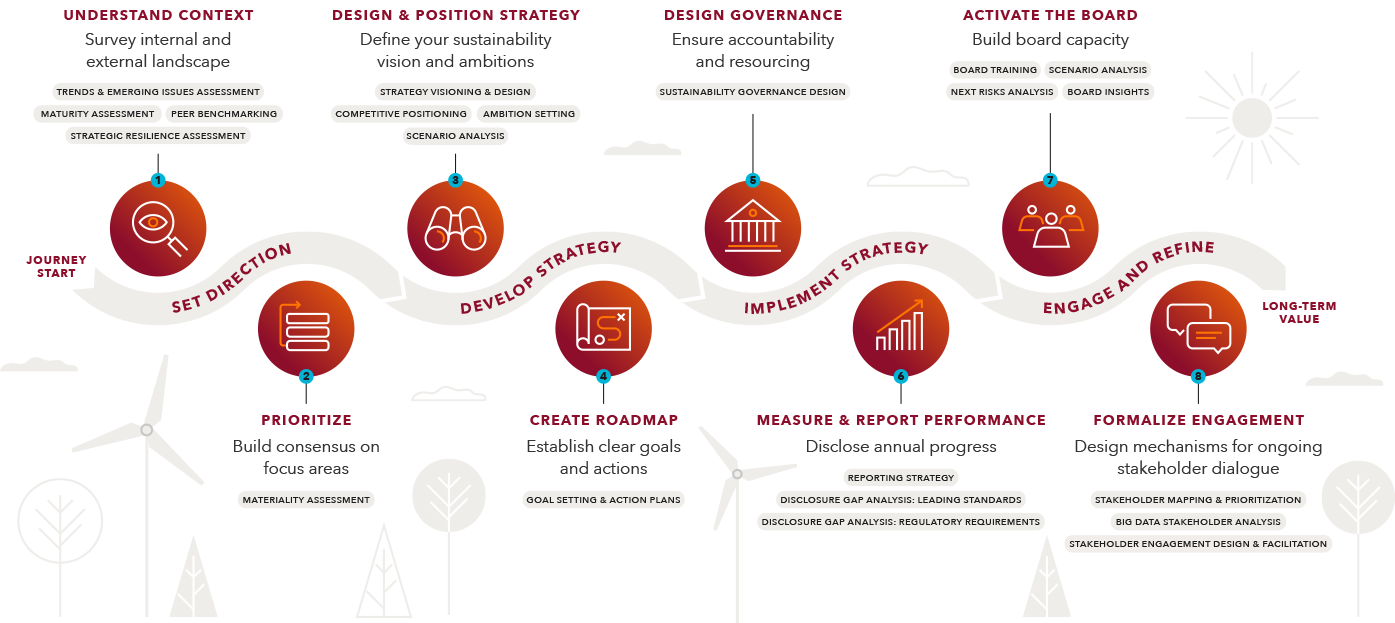
-
Charlotte Bancilhon
Former Director, Sustainability Management, BSR
Key Points
- Recently, China introduced national ESG reporting guidelines that require large companies to disclose their sustainability performance by 2026.
- The guidelines require businesses to balance global ESG integration with China’s priorities, improve data accuracy, foster collaborative approaches, and anticipate growing consumer expectations.
- Adhering to the new guidelines across the value chain is crucial for companies to mitigate risks, build trust, remain competitive, and drive sustainable growth.
It is estimated that the Sustainable Development Goals (SDGs), adopted in late 2015, will cost between US$90 trillion and US$120 trillion by 2030. In this light, there is no doubt that the financial services industry has a role to play in funding the objectives. There are many opportunities for investors and banks to fund the SDGs, and in the past year, banks and other companies have explored what these global goals mean to them.
The 17 goals provide a useful reference for banks and other financial services companies to understand and measure how they contribute to sustainable development.
All 17 of the SDGs require funding. But with 169 targets, the goals are not easy to navigate. To address this, financial services companies can choose to focus commitments on a small number of goals on which they have the most impact. These are the goals closest to their core business—rather than niche business, internal efforts, or philanthropic efforts—and that represent an opportunity, such as funding affordable and clean energy (Goal 7), rather than managing a risk, such as ensuring investments do not harm the oceans (Goal 14). Following a review of what financial services companies are currently focusing on, we found that the most relevant SDGs for the financial services sector are Goal 1 (no poverty), Goal 5 (gender equality), Goal 8 (decent work and economic growth), and Goal 13 (climate action).

The SDGs represent a strong framework for companies to use in defining sustainable development commitments. Banks and other companies should seize the opportunity to align their business strategies to the goals. This also includes moving beyond the important first step of communicating on what a company is doing to setting new commitments on investing in sustainable development solutions and measuring the impact of these investments.
Tab Heading
Tab Excerpt...Now is the time to move from commitments to action and ensure a rights-respecting approach is integrated across the supply chain.
The terms “human trafficking” and “modern slavery” are broad categories that encompass various forms of exploitation of persons for commercial gain, such as debt bondage, child, and forced labor. In the context of an ongoing shift from voluntary to mandatory due diligence, recent legislative measures on businesses and their supply chains underscore the need for business action.
On November 19, 2024, after months of political deliberations, the European Union approved a ban on the sale of products made with forced labor. The EU Regulation on Prohibiting Products made with Forced Labour marks a decisive step in complementing due diligence and reporting obligations for businesses. It also represents an upward trend of more stringent penalties that large economic markets have adopted to address forced labor risks in corporate value chains.
Topics
Let’s talk about how BSR can help you to transform your business and achieve your sustainability goals.







